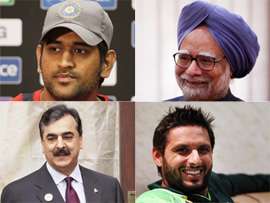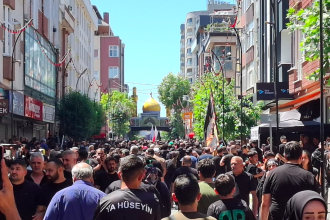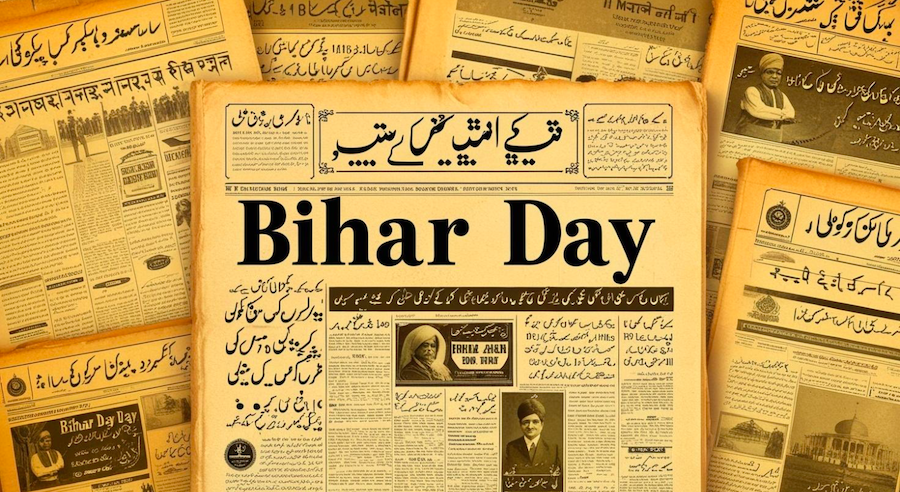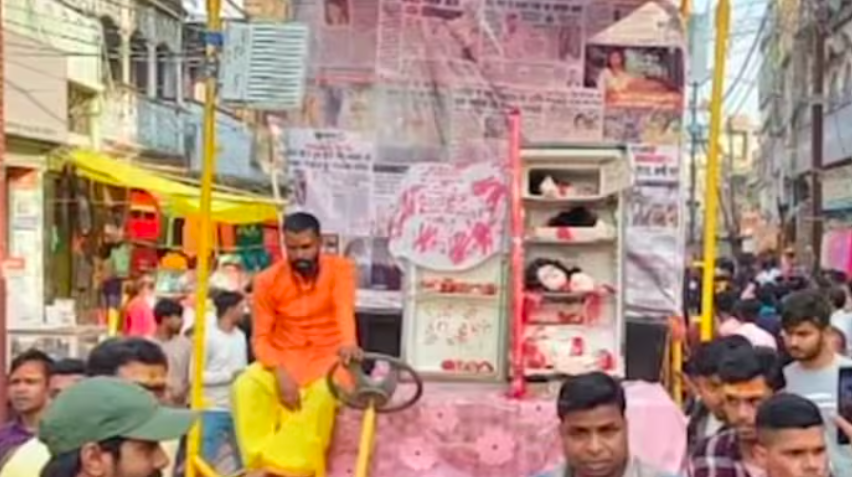Ayaz Memon
Expectation on the cricketing and diplomatic fronts rises with the mouthwatering prospect of an epic India-Pakistan match today. Sachin Tendulkar and Shahid Afridi crossing swords on the field and Prime Ministers Manmohan Singh and Yousaf Raza Gilani exchanging notes (hopefully ) are almost Homeric in their scope.
Relations between the two countries in the 64 years since Partition have ebbed and flowed, depending on the prevailing political climate with cricket emerging as its strongest metaphor. More than films and music, cricket cuts deep into the national psyches of the two countries, for it provides the opportunity to both compete and bond even as it throws up its own quirks.
 My first cricket tour was to Pakistan in 1982-83 . I had opted to cross over into Lahore on foot. Immigration and customs procedures at the Wagah border were peculiar. The officer on duty greeted us with back-slapping bonhomie, getting into a detailed discussion on the relative merits of Imran Khan and Javed Miandad vis-a-vis Kapil Dev and Gavaskar. He then sniffed suspiciously at the luggage. “Propaganda material not allowed,” he said, confiscating the film and political magazines in my bag.
My first cricket tour was to Pakistan in 1982-83 . I had opted to cross over into Lahore on foot. Immigration and customs procedures at the Wagah border were peculiar. The officer on duty greeted us with back-slapping bonhomie, getting into a detailed discussion on the relative merits of Imran Khan and Javed Miandad vis-a-vis Kapil Dev and Gavaskar. He then sniffed suspiciously at the luggage. “Propaganda material not allowed,” he said, confiscating the film and political magazines in my bag.
Such suspicion, i might add, was mutual if manifested differently . I recall the Indian press contingent going into a flap when somebody suggested that a young man who had befriended us could be a spy. A showdown became inevitable, but also hugely embarrassing. The young man, who had been of great help otherwise in navigating through a tough tour, was simply a cricket fanatic who rode on his new friendship to get complimentary passes to each match.
Thirty years later this kind of paranoia might seem ludicrous , but Indo-Pak cricket has always been an extraordinary roller-coaster ride. The impact of Partition was evident when cricketing ties between India and Pakistan started in 1952. The rival captains were Lala Amarnath and A H Kardar who, only a few years earlier, had played together for undivided India.
The complexity of such a situation became evident as passions soared on and off the field.When the two teams met again in 1955, pressure on either side not to lose had intensified. Charges of cheating and spying were traded through the tour and Kardar and Amarnath (now coach) virtually came to blows. And, in 20 years, both were chums again: As Amarnath was to tell me later, “All said and done, i am a Lahori.”
Sometimes things took a farcical turn. In 1955, the Indian team was convinced their premier all-rounder was being snared by a renowned courtesan from Lahore to make him ineffective. Similarly, in 1979-80 , when Asif Iqbal’s team was struggling in India, Pakistanis believed that this was because key players had succumbed to the charm of the femme fatales of the Hindi film industry.
Occasionally, fans have been driven to unseemly acts. In 1961, Pakistan’s stalwart opening batsman Hanif Mohammed had his hand slashed by a bladewielding hoodlum in Mumbai. In 1989, on the other hand, Indian captain Krishnamachari Srikkanth was attacked by a protester at Karachi’s National Stadium causing the match to be abandoned.
By and large, however, Indian and Pakistani cricketers have enjoyed respect and adulation in both countries. Asif Iqbal got a hero’s farewell in Kolkata in 1979-80 , Bishen Singh Bedi got a Pakistani carpet from President Zia-ul Haq for donating blood to a young girl following an appeal on television. In 1998, Wasim Akram’s team was cheered by the Chennai crowd despite beating India in a Test, and likewise, Sourav Ganguly’s team was the toast of all Pakistan after winning the 2004 series.
My late friend, the gravelvoiced commentator and cricket romantic Omar Kureishi, believed that “ruddy politicians” soured relations between the two countries which cricket could so easily forge. But if politics has often been the bane, it has also sometimes been a boon.
For instance, it took 17 years after Pakistan’s tour of India in 1961-62 for cricket relations to be resumed. The two countries had gone to war twice in the interim and many assumed that cricket ties were interred forever. The impasse was broken in 1978 by Pakistan’s new military dictator Zia-ul Haq and the Janata Party government led by Morarji Desai.
Interestingly, ‘hawks’ have played the more constructive role in Indo-Pak cricket than doves.
Zia salvaged Pakistan’s tour of India in 1987 by flying down to Jaipur as an act of ‘cricket friendship’ with forces on either side of the Line of Control training their guns on each other.
The BJP government, always accused of fanning anti-Pakistan sentiments, cleared India’s tour in 2004 despite formidable lingering opposition after the Kargil war of 1999. The Vajpayee government perhaps wanted to use cricket as a populist vote-catcher in the impending elections. That the BJP lost those elections is, of course, only the irony of political life. (TNN)








